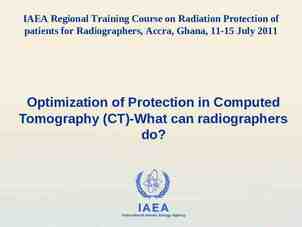American Functionalism Diverse and diffuse “school” of thought
10 Slides1.30 MB

American Functionalism Diverse and diffuse “school” of thought united by a few core themes: 1. Believed psychology should focus on the adaptive purposefulness of mental processes, rather than a static search for the elements of mental processes: ‘what is thought for’ rather than ‘what is thought made of’ 2. Emphasized the practical nature of psychology rather than “pure” science or theory 3. Eclectic and inclusive of both subject matter (developmental, comparative, perception, memory, pathology) and methods (introspection, experimentation, naturalistic observation, etc.) 4. Especially concerned with motivation, thought to reflect adaptive concerns: survival, reproduction, competition, etc. 5. Idiographic rather than nomothetic 6. Looked to William James rather than Wundt or Titchener for inspiration. Jamesian Pragmatism: In 1907 James published Pragmatism, overview of his Pragmatic philosophy. Any belief, thought, or behavior that increases life’s value is worth holding. Truth is what works. Good life steers course between toughminded skepticism, empiricism, and tenderminded idealism, optimism. Note connection to Aristotle’s golden mean

William James 1842-1910 Probably the most important early American Psychologist. Pragmatist philosopher influence by Charles Renouvier (1815-1903). Pragmatism: if an idea works, then its true. Established first American psychology lab at Harvard in 1875 (four years before Wundt’s lab), however, his lab was for teaching/demonstration, not original research. In 1890, produced a highly influential textbook: Principles of Psychology. In 1902 wrote Varieties of Religious Experience, which continues to be used and referenced today in Psychology of Religion studies. Argued that for the scientific study of the human mind, determinism must be assumed. But not everything about the mind can be understood scientifically because mental life is experience subjectively and scientific determinism assumes objective methods and measures. In keeping with Pragmatism, James argued for eclecticism: a wide range of approaches should be applied to study the complete spectrum of human mental life. James on free-will. In agreement with Vaihinger, James argued that whether or not free-will can be objectively verified, it is unquestionably subjectively experienced and essential to human social life. Pragmatically, free-will is simply the conscious decision to accept one idea or enact one behavior when others could be accepted or enacted. Thus, one could consciously decide (as James did) to believe in free-will and live life accordingly, thereby making free-will true. consciousness: James argued against structuralism by pointing out that consciousness is: personal, continuous, variable, selective, and functional, all of which are ignored in reductionistic ‘studies’ of consciousness.

Jamesian Psychology Instincts and habits: behavior is evolutionarily honed to be adaptive. In most animals this results in a relatively invariant set of behaviors (instincts) designed to increased fitness (hens sitting on eggs, dogs chasing critters, beavers building dams, etc.). Humans as well, except that our behaviors are more modifiable with experience (habits). With repetition, a habitual behavior pattern establishes an increasingly easily accessed and executed neural pathway that underlies the behavioral act. While much of this is emotionally, unconsciously driven (adaptive acts feel good and are automatically encoded) not all is. James believed we could consciously learn desired habits and eliminate undesirable ones achieving self-improvement. “Act as you wish to become.” Emotions for James resulted from behavior rather than causing behavior. Ideo-motor theory of behavior: neural events cause thought, thought drives behavior. Usually this is automatic, but consciousness can intervene. Such that attention focuses on one of several possible thoughts arising from simultaneous neural activity. The attended thought drives behavior. By practicing certain modes of thinking we can more effectively control our behavior. The Jamesian Self: The self for James was the totality of the individual which is material (body, possessions, family, etc.), social (social roles, rank, ‘known by others), and spiritual (self-awareness, states of consciousness, ‘my thoughts, feelings, perspective, etc.). Selfesteem was the proportion of personal success over aspirations (pretentions). James was not opposed to lowering one’s expectations in order to heighted self-esteem. Striving for unrealistic goals was not a virtue according to James.

American Functionalism Official beginning of Functionalism is usually dated to 1896 with the publication of psychologist John Dewey’s article “The reflex arc concept in Psychology,” Dewey was influenced by James’ Principles, but between Principles and reflex arc a number of other prominent psychologist laid important groundwork for the Functionism. Hugo Munsterberg (1863-1916). Took over James’ lab at Harvard 1892. Disagreed with James about role thought in behavior. For James, thought drove behavior, for Munsterberg, behavior drove thought. Credited with creating Applied Psychology. In clinical, used expectation and reciprocal antagonism (placebo and cog-behavioral therapy, reinforce thoughts incompatible with symptoms), Forensic Psychology – applied to law enforcement and law and Industrial Psychology – increase worker productivity, personnel selection, measurement of appropriate skills, etc. Note highly practical use of psychology. Mary Whiton Calkins (1863-1930). Studied under both James and Muntserberg at Harvard (though never official registered as student!). Developed paired-associates learning technique used extensively later in memory studies. Promoted ‘selfpsychology,’ – the phenomenological (not reductionistic) study of the one’s immediate, directly experienced mental life. Her “self” was an experienced self more than a free, responsible agent. Did not deny agent self, but was not subject of study. Her concept of self influenced later personality researchers.

American Functionalism G. Stanley Hall (1844-1924). President of Clark University in Worcester Mass. Progressive evolutionists (Spencerian), advocated recapitulation theory in human development, this is, as humans mature we pass through earlier stages of phylogenetic evolution. Children and adolescents retain more ‘primitive’ emotional and mental attributes which must be given ‘proper expression’ in order for them to mature into rational, adaptive adulthood. Proper expression was promoted by (many things) but he especially emphasized: (1) no masturbation – it stunted moral and intellectual development, (2) sex-segregated education – it promoted redirection (later called sublimation) of sexual energies into creative intellectual pursuits, which were essential for the continued progress of humanity. Advocated for ‘religious conversion’ during adolescence where they are turned from primitive self-centeredness to uniquely human ‘love of humanity.’ Francis Sumner (1895-1954). Studied under Hall at Clark University. First African-American to earned doctorate in Psychology. Probably most notable for raising the prominence of graduate psychology program at Howard University (Traditional Black University) which eventually lead to PhD program at Howard known as ‘Black Harvard.’ One of Howard’s products was Kenneth Clark (1914-2005) whose important work on the detrimental effects of segregation (on both Blacks and Whites) proved pivotal in the famous Brown vs. Board of Education Supreme Court ruling of 1954, ending institutionalized segregation in the US.

American Functionalism Official beginning: 1896, “The reflex arc in concept in Psychology” by John Dewey (1859-1952), leader at the University of Chicago ‘branch’ of functionalism. Inspired by James’ argument that consciousness could not be reduced to elements, Dewey argued the same was true of behavior. Behavior was not, sensation-brain processing-motor response. All are part of an integrated adaptive system that uses experience to adaptively adjust. Ex: child burned by candle does not learn new s-r response, but a new (more adaptive) way of perceiving and behaving around fire. Views spilled over into education where he advocated ‘learn by doing’ rather than traditional rote memorization and simple information transfer. Note again the evolutionary and pragmatic themes typical of functionalism. Harvey Carr (1873-1954). Graduated from U Chicago. Agreed with Dewey that behavior represented an integrative system and that learning allowed that system to become more adaptive. Combined the two in his Adaptive Act. Three components to Adaptive Act: (1) a motive which arises from a need (desire to eat arising from hunger). (2) An environment (with particular sensory characteristics) where motivedriven behavior is to be enacted, (3) a specific response designed to satisfy the need. Need-behaviorsatisfaction (or lack thereof) all embedded within a specific environmental context learning. Later, similar motive in similar environment leads to retrieval of previous adaptive act (if satisfaction occurred). If different motive, then environment is processed differently and different act. PerceptionBehavior system.

American Functionalism James Cattell (1860-1944). Functionalist leader at Columbia University in New York. Strongly advocated the practical application of Galtonian measurement in psychology. Measure traits, characteristics, etc. in humans and match them to social and work-related needs. Also important figure in the founding and operating of major research journals such as Psychological Review, Science, and the American Naturalist. Robert Woodworth (1869-1962). Student of Cattell at Columbia. Argued for dynamic psychology, an approach similar to Carr’s adaptive act approach. DP, however, placed even more emphasis on the motive behind behavior. A different motive could lead to a very different adaptive response under the same environmental conditions. If I’m hungry, I attend to and act upon the apple in the tree. If I fear the wolf, I attend to and act upon the tree as means of escape.

Functionalism and Comparative Psychology Functionalism valued both evolutionary theory and animal studies as means of understanding human behavior. Thus, it was an important force in the development of comparative psychology: nonhuman animal studies designed to elucidate the adaptive nature of behavior including human behavior. A leader in this area was Edward Thorndike (1874-1949). Though set in the functionalist school, Thorndike’s work foreshadowed both connectionism and behaviorism. He argued that sensory signals and associated responses are mediated by strengthening neural connections (connectionism). These connections were strengthened according to two behavioral laws (behaviorism): law of exercise (more frequent s-r associations are retained, less frequent lost – he later abandoned this); law of effect (positively reinforced responses retained, negative lost) Thorndike was famous for his puzzle box studies with cats. Cat is placed inside box. Box has a string or lever which operates a door. Cat must pull string to open door to get access to food reward. With Puzzle box studies Thorndike concluded that learning was: (1) incremental, (2) automatic, unmediated by thought (contrary to later Gestalt studies on insight in apes) and (3) generalizable across mammals (same learning principles applied to all.

Animal studies leading up to Thorndike Thorndike’s work built upon a tradition of animal studies that had preceded him. George Romanes (1848-1894). Inspired by Darwin, Romanes largely engaged in observational studies of animal behavior. Though interesting, much of his work was criticized for anthropomorphizing animal behavior, that is, attributing human motivations, intentions, and thought processes onto animal acts. Conway Lloyd Morgan (1852-1936). Professor of Zoology, Geology, and Psychology at University of Bristol, England. Famous for Morgan’s Canon: In no case may we interpret an action as the outcome of the exercise of a higher mental faculty, if it can be interpreted as the exercise of one which stands lower in the psychological scale. Thus, is there a simpler or more species appropriate explanation that we might give for the primate playing the guitar rather than the same one we would give for zz top? Margaret Floy Washburn (1871-1939). Student of Titchener, first woman to earn doctorate in Psychology in 1894. Primarily interested in animal consciousness, summarized hundreds of animal experiments in attempt to create an evolutionary index of animal consciousness in her book The Animal Mind (1908), which remained a standard text for decades.

The Baldwin Effect James Mark Baldwin (1861-1934). Studied Psychology under Wundt, but earned doctorate in Philosophy at Princeton. Famous for his work on what became called The Baldwin Effect, that is the role that organism’s play in directed their own evolution through niche construction. For example, by using tools apes (especially humans) gain access to new resources. This may give an evolutionary advantage to tool users or non-tool users. Thus, by their own activity, tool use is selected for in later generations. Baldwin marks a point at which American Functionalism began to “decline” due to its own success. Instead of ending, (as structuralism did with the death of Titchener), it increasingly became ‘absorbed’ into other more focused approaches to Psychology.






